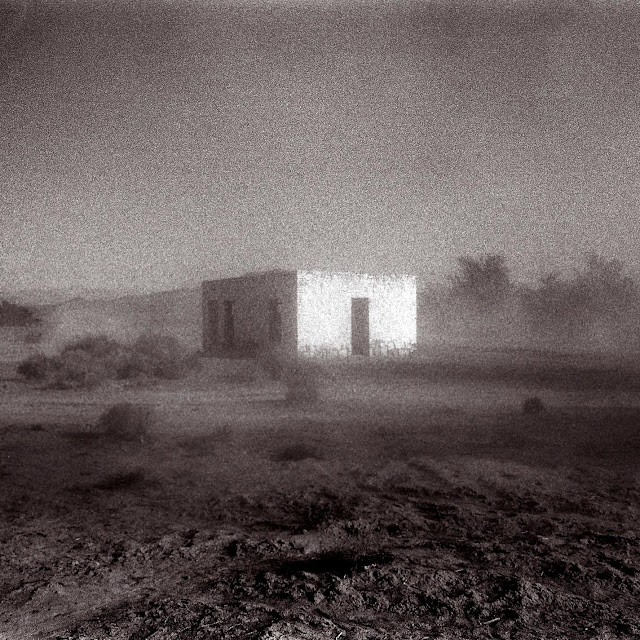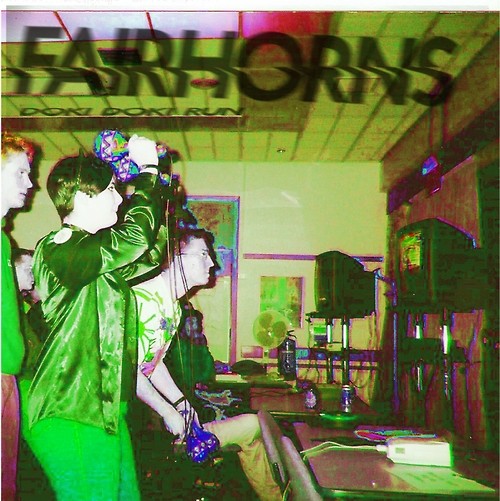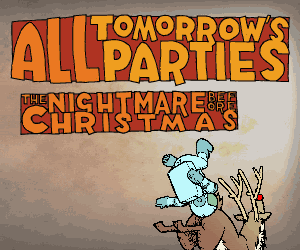In anticipation of the third all-out new wave cover record of Francophonic lounge champs Nouvelle Vague, our weaving electronic paths intertwined with founding member Olivier Libaux to discuss the contemporary significance of the cover version, urges to throw a bit of original songwriting into the copyright-cleansed mix and the odd guest spot…
Dots: You’ve just pieced together your 3rd record. how difficult is it to decide on which cover versions make each final cut?
Olivier Libaux: Putting together a Nouvelle Vague album is like selecting own songs to do the tracklist of a solo album. There’s a mix of favourites songs, songs you think are working very well, slow songs, fast songs, etc, etc. We generally have to pick 13 songs out of 40 for an album - which can happen to be disappointing and frustrating for us.
Dashes: How and when do the covers begin to take shape?
OL: We usually start a cover by only playing the song on my guitar. Obviously, the idea is to change the rythm of the song, compared with the original, and find a way of playing it - just with the guitar - which could drive our ideas of arrangements in an interesting direction. As soon as we feel the cover is happening, we start the recording and think about the girl who is going to perform the song.
Dots: Having received critical acclaim through the songs of others, do you ever feel the urge to write music of your own?
OL: We do write and record personal songs and music. For example, my next album will be my third, and before that I used to write all songs in my 1st band (all material is unfortunately only available in France and a few other countries). All Nouvelle Vague members are also solo artists, which is a good thing, because we all can take Nouvelle Vague freshly, with the pleasure and creativity it deserves. We are often asked if we would one day put some of our songs on a Nouvelle Vague album, and the answer is always no. Nouvelle Vague is dedicated to covering new wave music.
Dashes: When commissioning your work for TV ads, do you ponder the dilemma of “selling out” or do you regard it as a vital way to expand your horizons?
OL: We don’t really think that much about it. The thing is, Nouvelle Vague happened to become sort of popular in terms of “syncs” - meaning our versions being used in Ads, Movies, TV shows, etc. We were not really expecting that kind of thing back in 2003, but we are quite happy with it. Our english label is also good at dealing with these things, and good news is these syncs are interesting for original publishers/writers too.
Dots: Who would you class as your deepest influences?
OL: There are so many…it’s impossible to answer. Anyway, as anyone and everyone can guess, punk, post punk, new wave music has been a huge influence for us, among others.
Dashes: How deeply does the french heritage run within the work of Nouvelle Vague?
OL: It’s funny; everybody outside France considers Nouvelle Vague to be a “French” thing although we never felt like incorporating French influences (or heritage) into our project. Our name “Nouvelle Vague” was only picked because of its translation into “new wave” and “bossa nova”. We were not really thinking about Godard when we picked our name. Anyway, obviously we are french, we sing with a French accent, and I guess too that we have a way to do things which is quite…personal.
Dots: Were one of your own songs to be covered by one of your contemporaries, who would you select?
OL: I don’t really know. Divine Comedy or Belle and Sebastian, maybe?
Dashes: What sort of feedback, if any, do you receive from the original artists and songwriters you chose to interpret?
OL: Feedback has always been good - or if it hasn’t been, we have never heard about it…! We’ve had good reactions from nearly every artist, fanclub, publisher etc. I think that many artists we have covered were initially surprised by Nouvelle Vague versions but then, a sort of relationship has developed between ourselves and certain artists. For example, I don’t think Martin Gore, Ian Mc Culloch, Barry Adamson or Terry Hall would have accepted to feature on NV3 if they were not appreciating the band.
Dots: Finally, how significant to today’s music world is the cover version?
OL: I could not tell. Cover versions have always existed. Just remember that in jazz, themes were being created by one artist, and then played over and over again by hundreds of different bands. Regardless, I see Nouvelle Vague as quite unique in the cover version domain, as I can’t find in my memory a single band dedicated to covering a single genre, let alone doing it the way we are doing it.
Nouvelle Vague- God Save the Queen (3)
Nouvelle Vague- Too Drunk to Fuck (Nouvelle Vague)
Nouvelle Vague- Ever Fallen in Love (Bande A Part)
Nouvelle Vague's third record proper, 3, is out now and is available here!























